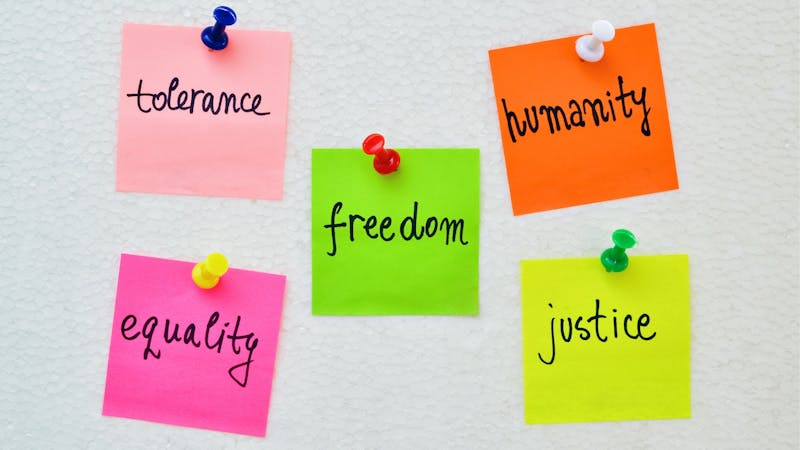Getting an Education as an Undocumented or DACA Student Navigating Education Barriers with Resources, Tips, & Organizations

Gaining an education is a constitutional right in the USA, still for many, especially undocumented people and DACA students, this right can be challenged, limited, or inaccessible due to legal and societal barriers.
Undocumented individuals can face barriers at every turn despite the promise of equal educational opportunities. For many, some of the main obstacles are the lack of federal financial aid for higher education and the significant absence of bilingual support in the classroom for non-native English speakers, fueled by outdated immigrant policies and ever-changing laws and policies.
Still, gaining an education as an Undocumented or DACA student is challenging but not impossible; you just have to be redirected to the appropriate resources, organizations, and policies that protect your rights.
So, with that in mind, the aim of this article is for you to discover organizations and support for students like you.
Educational Barriers Undocumented and DACA Students Face
As well as the challenges posed by financial aid restrictions, which can be overwhelming and discouraging for students seeking higher education, undocumented students and DACA recipients often encounter discrimination and face numerous educational barriers from the very beginning of their academic journey.
Here are some barriers and statistics to think about:
- Access to bilingual educational programs is one of the first barriers - as pointed out by Latina magazine, there isn't enough support in a student's native language. In fact, recent evidence suggests that the US-wide teacher shortage, fueled by low pay, burnout, and unfair expectations, is further aggravated in specialized fields, like bilingual education. (Axios Latina)
- Academic and social skills may decline with schooling, as expectations from teachers are low because students struggle to express themselves in English. (MPI)
- Undocumented youth have a constitutional right to a K-12 public education. Still, as they transition into adulthood without legal residency status, they can't legally work or vote and are threatened with deportation. (Becoming DACAmented)
- Many immigrants live in constant upheaval and anxiety of family members being deported. While school is naturally stressful, immigrant-related uncertainty is an additional stressor affecting academic performance. (Latina Republic)
- Regardless of their DACA status, undocumented students aren't eligible for federal grants or loans, plus ever-changing policies are difficult to understand. (Inside Higher Education)
Challenges of Accessing a Bilingual Education in the US
According to 2020 figures, English language learners represented around 10% of public school students in 12 states. The states with the highest percentage of non-native English speakers are Texas, California, and New Mexico.
Unsurprisingly, Spanish is ESL learners' most commonly reported home language, while Arabic is the second, and Chinese, Vietnamese, and Portuguese closely follow. Still, despite the wealth of languages across the US, accessing a bilingual education can be difficult, making it more challenging for many schoolchildren.
Historically, the discussion over equal educational opportunities for Limited English Proficient or LEP students (Federal Government term) has long been debated. From the expired Bilingual Education Act (BEA) to the Title III Part A Act, which focuses more on English language proficiency - legislation for ESL learners has shifted dramatically over the decades.
These changes have also heavily affected educators' ability to instruct in different languages, as state requirements for English language instructional models vary significantly.
Bilingual and Supportive Resources for DACA Students / DREAMers
All of the following support organizations and resources have bilingual programs, meaning you can access information and support in your native language.
United We Dream
United We Dream is one of the most important youth-led networks in the U.S. Its list of support and resources for DACA recipients is comprehensive and state-wide.
Siren
Siren is a multilingual network fighting for refugee and undocumented immigrant rights. They partner with organizations and state policies to ensure immigrants' rights are adhered to.
https://www.sirenimmigrantrights.org/
The Immigrant Learning Center
ILCTR based in Malden, MA, provides free yearly ESOL courses for undocumented immigrants and is passionate about breaking unfair stereotypes of undocumented immigrants through its Public Education Institute.
ACLU
Human rights should be defended no matter where you come from. ACLU works to defend the constitutional rights of ALL people nationwide. For students, they have a Know Your Rights Guide to bookmark.
Undocublack Network
A multi-generational network of current and former undocumented black people throughout the USA. Providing access to resources, advocacy, and community. One of its current resources covers the Liberian Refugee Immigration Fairness policy under the NDAA Act.
Immi
If you need help to understand your legal and educational rights in the U.S. as an immigrant, Immi is the collaboration between Immigration Advocates Network and Pro Bono Net. They offer referrals to free nonprofit legal services.
https://www.immi.org/en/home/index
CHIRLA
CHIRLA, a California leader, is striving to achieve a fair society fully inclusive of immigrants. Its toll-free information and referral line in English and Spanish is available on weekdays during working hours.
Youth Center for Immigrant Children’s Rights
The Youth Center's Child Advocate Program offers independent advocates for immigrant children's best interests, safety, and well-being. While their Elizabeth Frankel fellowship program supports law students looking to advocate for immigrant children.
General Organizations, Resources, & Apps for Undocumented Students and DACA Recipients
The following organizations, charities, and resources span many fields; however, they are all passionate about informing undocumented immigrants or DACA recipients about their and their families' rights while living in the U.S. through resources, storytelling, and community outreach programs.
Immigrants Rising
Immigrants Rising recognizes the importance of creating a space where undocumented students and DACA recipients are supported and uplifted with all the necessary information to thrive.
Informed Immigrant
Informed Immigrant in English and Spanish is the work of hundreds of resources, immigrant rights leaders, services, lawyers, and organizations. They offer the most up-to-date guidance and information for the immigrant community.
https://www.informedimmigrant.com/
National Immigration Centre
Everyone living in the U.S. should be empowered to achieve their fullest potential no matter what they want to do. They fight for immigrants' rights and advocate upholding legal policies. They also educate the community on their rights through its Community Education materials.
National Immigration Forum
Working with immigrants and being in the decision-making rooms are the missions of the Immigration Forum. Its advocacy center fights for all immigrants' rights and regularly holds advocacy, policy, and legislation conferences.
Only in America
The Only in America podcast by the National Immigration Forum was discontinued in 2022. However, you can still access the episodes. It covers culture, identity, and values in education and more.
https://immigrationforum.org/landing_page/podcast/
President Alliance on Higher Education and Immigration
An alliance of U.S. colleges and university leaders who want to educate the public through research, webinars, and advocacy on how immigration policies and practices impact U.S. students, campuses, and communities.
Fighting for Your Educational Rights
Fighting for your educational rights can be a challenging and frustrating process, but it's essential to advocate for yourself and others to ensure fair and equitable access to education. Here are some tips to help you navigate this journey effectively without burnout:
- Advocate for your educational rights by knowing the laws, gathering evidence, and communicating with the school.
- Seek support from family or counselors, and request a formal evaluation if needed. Be patient, persistent, and escalate to higher authorities if necessary.
- Refer educators to supporting undocumented youth guide by the U.S. Department of Education.
- Remember, advocating not only benefits you but can create positive change for others facing similar challenges. Get in touch with movements and important inclusive political game-changers like Mijente.
- Consider legal advice if you need to. The Immigrant Defense Project has a ticketed legal Helpline for people affected by the criminal system. United We Dream's resources offer advice for anything from education to current policies and how they affect you.
- Document everything and keep a written record of all communications and interactions with the school or relevant authorities.
- Familiarize yourself with the language commonly found in legal jargon so you can appropriately choose the terminology to use. Consider this process akin to a word finder playing games, where identifying the right vocabulary becomes a strategic and essential part of effective communication.
- Appeal decisions. If you receive an unfavorable decision that you don't agree with, remember you are allowed to appeal! First, review the school's appeals process and consider filing a report.
If you can, encourage others to read other undocumented immigrants' stories. Define American is a huge advocate for changing the immigrant narrative that fuels stereotypes. While the Immigrants Story embraces the histories of hundreds of people who've adopted America at their homes.
References
- Rutherford-Quach, S., Torre Gibney, D., Kelly, H., Ballen Riccards, J., Garcia, E., Hsiao, M., Pellerin, E., & Parker, C. (2021). Bilingual education across the United States. CCNetwork.
https://www.compcenternetwork.org/sites/default/files/Bilingual%20education%20across%20the%20United%20States.pdf - NASSP
https://www.nassp.org/top-issues-in-education/position-statements/undocumented-students/ - Frazee, G. PBS
https://www.pbs.org/newshour/politics/what-constitutional-rights-do-undocumented-immigrants-have - American Immigration Council - The Dream Act https://www.americanimmigrationcouncil.org/research/dream-act-overview
WordFinder X is an inclusive community of creators passionate about making tech accessible for all types of topics and games. Our Scrabble word finder is just a glimpse into the innovative resources we provide. In the spirit of DEI, we strive to bring accessibility to all aspects of life, fostering a welcoming environment for everyone through our work.

About the author
Sarah Perowne
Sarah Perowne is a language and education specialist with over 10 years of experience in teaching and content creation. She has worked with students of all ages in various teaching methods, including those with disabilities and ASD. She sports an acute knowledge and skillset in teaching English as a second/foreign language (ESL) English Language Arts and creating content for online teaching resources, articles, and podcasts.



